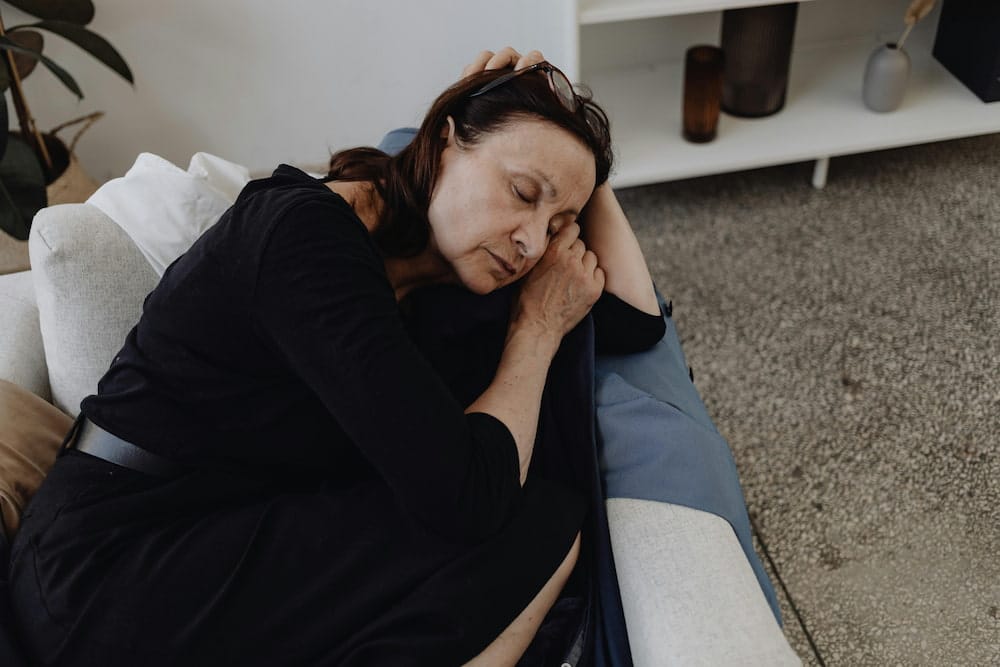
If you’ve ever felt a sudden wave of heat washing over you, leaving you all flushed and sweaty, you’re not alone. A hot flash—an intense, sudden surge of heat—is a common experience for many women, particularly during menopause. Over 80% of women experience it during menopause.
While a hot flash might seem minor, it can disrupt your daily life. They can strike anytime, interrupting your work, quality time with loved ones, and even sleep. Learn the causes of hot flashes, their triggers, symptoms, and treatment options in this blog.
A hot flash is a brief period of intense heat that spreads throughout the body. It often involves sweating and flushing of the skin, lasts between 30 seconds and several minutes, and varies in frequency and intensity.
A woman going through menopause often experiences a hot flash. Fluctuations in estrogen levels can cause the hypothalamus, a part of the brain that regulates body temperature, to be more sensitive to slight changes.

A hot flash can be a personal experience, varying in intensity and frequency from woman to woman. However, several key symptoms are commonly associated with this condition.
While hormonal changes are the underlying cause of a hot flash, especially during menopause, several everyday factors can trigger it. Avoid such triggers to reduce its frequency and intensity significantly.

A hot flash can be effectively managed through a variety of approaches, from lifestyle changes and medications to hormone replacement therapy (HRT) and alternative therapies. Let’s explore these options in more detail.
Important: Discuss hot flash treatment options with a healthcare professional to work out the best approach based on your needs, preferences, and health history.
 Certain lifestyle changes can help manage and provide relief from a hot flash and other menopausal symptoms.
Certain lifestyle changes can help manage and provide relief from a hot flash and other menopausal symptoms.
Hormone therapy for hot flashes is an effective treatment for managing menopausal symptoms. It works by replenishing the body’s declining estrogen levels, which helps to regulate the hypothalamus. HRT can significantly reduce hot flash frequency and intensity, improving sleep, mood, and overall quality of life.
Recognizing that every woman experiences unique menopausal symptoms, Edge Weight Loss and Fatigue offers personalized HRT plans tailored to your needs and medical history. Our healthcare professionals will work with you to determine the suitable HRT dosage and delivery method to manage your symptoms safely and effectively.

In addition to lifestyle changes and HRT, some women can get treatment through complementary therapies, such as the following:
Antidepressants, called selective serotonin reuptake inhibitors (SSRIs), are effective in reducing hot flash frequency and severity. These medications include fluoxetine (Prozac®), venlafaxine (Effexor®), and paroxetine (Paxil®, Brisdelle®).
 A hot flash can be disruptive and uncomfortable. However, there are steps you can take to manage your symptoms and restore quality of life.
A hot flash can be disruptive and uncomfortable. However, there are steps you can take to manage your symptoms and restore quality of life.
A hot flash often comes as a disruptive symptom experienced by many women in menopause. It’s triggered and caused by fluctuations in estrogen levels and the hypothalamus’ sensitivity to temperature changes.
Symptoms of hot flashes are sensations of intense body heat, flushing, sweating, rapid heartbeat, and chills. These can significantly impact a woman’s daily life, disrupting sleep, work, and social life. Treatment options, like lifestyle changes, hormone replacement therapy (HRT), alternative therapies, and medications, can help.
Remember: what works for one woman might not be the best solution for another. Consult our healthcare professionals here at Edge Weight Loss and Fatigue to create a tailored treatment plan to address your needs effectively and safely.
Contact us today, and let’s walk through your menopausal journey together.